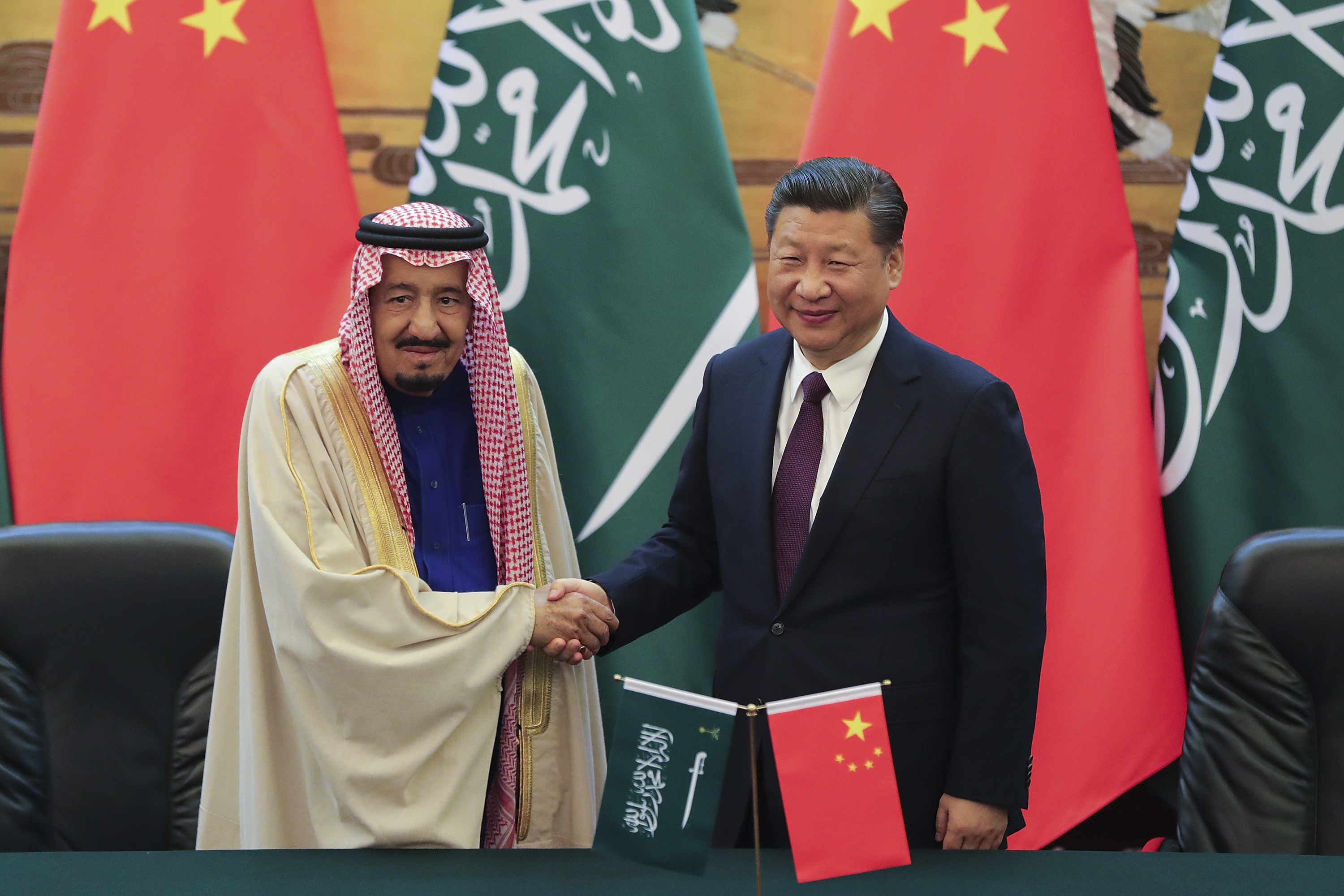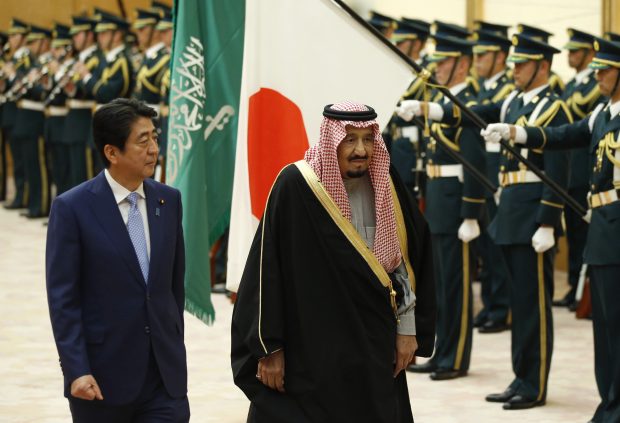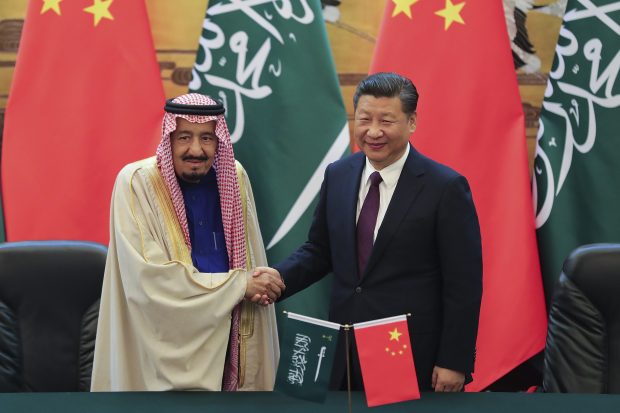
What’s at stake for Saudi-East Asian relations?

Saudi Arabia’s King, Salman bin Abdulaziz Al Saud, accompanied by a large delegation including royal family members and ministers, paid a month-long visit (that started from the end of February) to East Asian-Pacific countries, including Malaysia, Brunei, Indonesia, Japan, and China.
It is rare in Saudi diplomacy to have such long foreign visits. Thus, the 81-year-old Saudi king’s major tour of East Asia needs a closer look as it seems to be part of a new Saudi foreign policy vision. Although the trip was generally read from the perspective of energy and investment issues, it also had a deep geostrategic context.
King Salman’s visit to Japan has significant notes. First of all, it was the first trip made by a Saudi king in 46 years. Salman did travel to the country in 2014, but that was when he was the crown prince. The king visited Japan after staying in Indonesia. Previously he also visited Malaysia and Brunei.
King Salman, at the end of his visit to Japan, announced with Japanese Prime Minister Shinzo Abe the “Saudi-Japan Vision 2030” in order to strengthen bilateral economic cooperation between two countries. The trip also marked Japan’s support for Riyadh’s efforts to end Saudi’s dependence on oil amid falls in oil prices. For Tokyo, a city that lacks fossil fuel reserves other than coal, ensuring a stable supply of energy from Saudi Arabia is of great importance. At the same time, for Saudi Arabia, which is the largest supplier of oil to the fuel-hungry Japanese economy, the investment of Japanese companies in Saudi Arabia, including the setting up of special economic zones and economic cooperation with the East-Asian country is highly significant. Some two-thirds of Saudi oil exports go to East Asia, particularly to China and Japan.
Riyadh’s interests in Pacific East-Asia are not only focused on Japan but also China, which Tokyo views as a top competitor in the East-Asian region as well as in the Middle East.
Thus, China was the next trip made by the Saudi king on his Asia tour. Although the energy agenda continues to dominate Saudi-Chinese relations, politico-military cooperation between the two countries seems to have advanced in recent years despite the two countries having had conflicting perceptions of the Syrian war.
China placed great significance on King Salman’s visit because Saudi Arabia is the world’s largest crude-oil exporter and China is the world’s largest oil importer; plus, Beijing is the world’s second-largest economy. Oil and the economy were significant enough for the two countries to come closer despite differing political ambitions. Moreover, on this visit, the two countries inked memorandums of understanding worth over $65 billion in potential deals regarding the areas of energy, investment, and military. Such efforts have paved a way for a more comprehensive strategic partnership.
Recent years witnessed China’s increasing role in the Middle East and in Africa. China aims to upgrade its position in the Middle East via reliable regional partners and Riyadh serves its interests in this aim particularly while the region is engulfed in conflicts. This is even likely given recently strained ties between Riyadh and Washington.

In the past few years, Saudi Arabia began to move away from its foreign policy of being completely dependent on the US, particularly after Saudi-American relations deteriorated under the tenure of former US President Barack Obama. There is an understanding in the Saudi side that the Gulf state has been very dependent on the US and there should be a change in this policy. This particular shift in policy surfaced after the Obama administration lifted sanctions on Iran—a regional rival of Saudi Arabia. Besides Iran, US policies in Syria and Egypt were also reasons for Saudi’s move away from US dependency.
And the interesting part of the China visit was that the same time the Saudi king met with the Chinese leadership, Saudi Deputy Crown Prince Mohammed bin Salman was in Washington to meet the Donald Trump administration.
Riyadh is not only striving to diversify its economy and reduce its dependence on oil; but also trying to increase its partners in the international arena. Thus, China and Japan could be considered as important geopolitical counterweights to the United States, which seems to be reluctant to act as Riyadh’s guarantor of security.
Last year, Saudi’s deputy crown prince first met with the defense ministers of Indonesia, Malaysia, and the minister of Brunei in January. Then, in September he visited Beijing and signed 15 deals and memorandums of understanding with the Chinese leadership.
Prince Salman is an ambitious young leader who plans to expand Saudi influence not just in the Middle East but also in other regions. Under the “Saudi Vision 2030”, he plans to transform Saudi Arabia from an oil dependent country to an economic power in the same camp as with the world’s leading countries. Thus, he is interested in East Asia in addition to the US.
Compared to the long-standing alliance in the Saudi-American relationship, Riyadh’s relations with East-Asian countries are in their infancy, lacking any comprehensive strategy. It wouldn’t be wrong to describe this new relationship solely based on the “energy business” with both sides merely focused on securing long-term energy supplies by diversifying their sources. Therefore, the Saudi-East Asian relationship still remains on the basis of energy and economy, while militarily ties with the US remains a priority.
With the recent visit to Washington, Saudi Arabia winks at the new Trump administration in order to open a new page in Saudi-US relations. Given the uncertainty of US policies towards the Middle East and Saudi Arabia under President Trump, it is crucial for Riyadh to tread a fine line between the US and other global actors in order maintain balance.
Saudi Arabia’s close relationship with China and Japan is actually part of the broader cooperation between the Gulf and East Asia. Saudi Arabia, like many other countries in the politically fragile the Middle East, is aspiring to play a greater role in world affairs by shifting away from the West and towards the East, in effect, harboring greater interests in the international community for the coming years.
Taken together, King Salman’s East Asia tour not only served Saudi’s personal interests but also gave opportunities for East Asian countries, particularly Japan and China, to enhance their position in the Middle East which has always been marked by diverse and unexpected situations.
Sinem Cengiz, Analyst, Turkey




